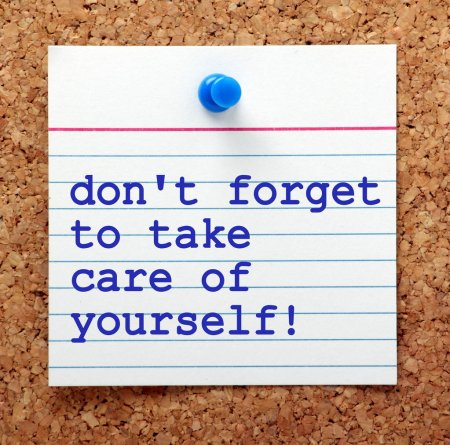September is Self-Care Awareness Month, and, at first glance, this might seem a little silly. After all, when many people think of self-care, the first thing that comes to mind might be what all the commercials and television shows portray: someone lounging in the bath, cucumber slices on their eyes, drinking wine or indulging in a “cheat” food, or something like that. But that’s not a very realistic definition of self-care.
At its core, self-care is anything – any activity – that we do, purposefully and intentionally, in order to take care of our health. This includes mental, emotional, and physical health. Someone who makes sure that they schedule time into their daily routine to exercise in some way, because they know they feel better if they get even a walk in, is participating in self-care. Someone who schedules a phone call every week with a friend because they know it helps to stave off depression is participating in self-care. Saying no to excess activities can be a form of self-care.
Graduate students are thought to be three times more likely than the average American to experience mental health disorders and depression. They often don’t have the funds to pay for private mental health counseling and their school might not have the ability to provide ongoing counseling or support groups. They may also be hesitant to see a counselor because of stigmas associated with mental health difficulties.
If find yourself unable to do your work or daily activities because of emotional distress or anxiety, please call your health care provider. If you don’t have one, the National Suicide Hotline is 1-800-273-TALK (8255) or they even have a live online chat. Emotional support and resources are out there, and no one should feel ashamed of needing help during a stressful time. The SAMHSA (Substance Abuse and Mental Health Services Administration) Treatment Referral Hotline can provide you with general information about mental health and let you know where local treatment providers are. Their number is 1-877-SAMHSA7 (726-4727).
Here at Dissertation Editor, we know the pressures graduate students face because we faced them, too. We know how stressful it can be to juggle graduate school, work, family, and other obligations. While we cannot do your work for you, we are here to help reduce your stress by providing a range of services that can help you lighten your load, including coaching, editing, and more. Contact us today to learn how we can be of assistance!
< Tips for Stress Reduction Dissertation Editor is Now in the UK! >